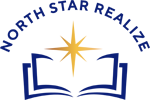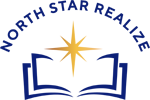NSR Academy 6-8
Motivating Young Minds with Interactive E-Learning
November 10, 2023
Explore Our Courses
Dive into our featured courses designed to spark curiosity and foster a love for learning.

Holy Quran
في المرحلة الابتدائية (4-6)، تُركز أهداف تعليم القرآن الكريم على تعميق فهم الأطفال للقرآن وتطوير مهاراتهم في قراءة وحفظ القرآن. يتضمن ذلك تحفيظ سور قرآنية متوسطة الطول، وتعلم قواعد التجويد، وفهم معاني الآيات
بأسلوب يناسب تطورهم العقلي والديني. كما تُشجع المشاركة في الأنشطة المتنوعة لتعزيز الفهم الديني والثقافي، وتعزيز الانتماء إلى القيم الإسلامية وتطبيقها في حياتهم اليومية بشكل فعّال.
26USD / 99SR for 1 Month

Arabic Language
في المرحلة الابتدائية العليا تتطور المهارات اللغوية والتفكير النقدي والتحليلي لدى الأطفال. تركز أهداف التعليم على تحليل النصوص المعقدة واستخلاص الأفكار الرئيسية منها، وتقييم النصوص من حالجودة والمحتوى والتعبير
الأدبي. ويتم تعزيزمهارات الكتابة من خلال الكتابة الإبداعية كالقصص والفقرات والوظيفية كالرسائل، مع تطوير مهارات التحرير والمراجعة
الذاتية للنصوص المكتوبة. وتنمو مهارات التحدث والاستماع عبر المشاركة في المناقشات الجماعية، وإعداد وتقديم عروض شفوية منظمة، وتحسين الاستماع النقدي. كما تشمل الأهداف تطوير مهارات البحث باستخدام مصادر مكتبية وإلكترونية، وتنفيذ مشاريع بحثية جماعية وفردية. ويتم تعزيز الوعي الثقافي والأدبي بقراءة وتحليل الأدب العربي والعالمي الكلاسيكي والحديث. استخدام التكنولوجيا يشمل الأدوات الرقمية لتعزيز القراءة والكتابة، وتطوير مهارات التعلم الذاتي عبر الإنترنت. تسعى هذه الأهداف إلى إعداد الطلاب ليصبحوا قراءًا وكتّابًا ونقادًا مفكرين، قادرين على التواصل بفعالية وتحليل المعلومات بشكل نقدي، مما يؤهلهم لمواصلة تعليمهم بنجاح في المراحل التعليمية اللاحقة.
93USD / 350SR for 1 Month

English Language
The English Language Arts (ELA) objectives for Grades 4-6 progressively build on literacy skills, enhancing comprehension, writing and communication abilities. Across these
grades, students develop their ability to cite textual evidence, identify main ideas and themes, and analyze text structures. In reading, they move from understanding explicit content to making inferences and analyzing how parts of a text contribute to its overall meaning. Writing tasks become increasingly complex, evolving from crafting structured opinion pieces, informative texts, and narratives in Grade 4 to developing well-supported arguments and conducting thorough research projects by Grade 6. The use of the writing process and technology is emphasized throughout to plan, revise, and publish work. Speaking and listening standards progress from participating in discussions and presenting information clearly in Grade 4 to summarizing diverse media and presenting claims with supporting evidence by Grade 6.
Language skills focus consistently on proper grammar, usage, punctuation, and vocabulary, with an increasing emphasis on understanding figurative language and word relationships. This progression ensures that students build a strong foundation in literacy, critical thinking, and effective communication as they advance through each grade level.
106USD / 399SR for 1 Month

Math
In grades 4 to 6, the math curriculum focuses on advancing fundamental skills while introducing more complex concepts and problem-solving strategies.
Grade 4 emphasizes extending understanding of place value to decimals, performing multi-digit operations, and exploring patterns and geometric classifications. By grade 5, students progress to mastering operations with decimals and fractions, interpreting numerical expressions, and analyzing data representations on coordinate grids. Grade 6 further builds upon these foundations by delving into division with multi-digit numbers, solving equations, understanding ratios, and applying geometric principles to solve real-world problems involving area, surface area, and volume. Throughout these grades, the emphasis is on developing fluency in mathematical operations, logical reasoning, and practical application of mathematical concepts, laying a robust groundwork for continued mathematical success in higher education and beyond.
93USD / 350SR for 1 Month

Science
The science learning objectives for grades 4-6 are designed to expand students knowledge and skills across various scientific disciplines. Students
delve into advanced topics like ecosystems, forces, and geological processes while honing their scientific inquiry abilities through hands-on experiments and technological applications. Integration of mathematics enhances their data analysis and problem-solving capabilities within scientific contexts. Emphasis is placed on fostering critical thinking, effective communication through scientific writing and presentations, and ethical awareness in scientific practices and environmental stewardship. Overall, these objectives provide a robust foundation for students to deepen their understanding of the natural world and prepare them for more complex scientific exploration in subsequent grades.
106USD / 399SR for 1 Month

Computer Sciences
In grades 4-6, students learn introductory programming concepts using text-based languages, develop computational thinking through problem-solving
exercises, and explore basic digital tools like word processing and data analysis. By grade 6, they advance to mastering
programming constructs such as classes and objects, begin learning web development with HTML and CSS, and gain knowledge in cybersecurity and digital citizenship. This curriculum prepares them with essential skills in programming, problem-solving, and digital literacy crucial for future academic and career endeavors in technology.
93USD / 350SR for 1 Month

Holy Quran
في المرحلة المتوسطة، تُعزز أهداف تعليم القرآن الكريم لدى الطلاب عدة جوانب أساسية. يتضمن ذلك تحفيظ سور طويلة من القرآن وتطبيق قواعد التجويد بدقة، مع التركيز على فهم المعاني القرآنية وتفسيرها بشكل عميق. يُعمق البرنامج أيضًا
في دراسة الموضوعات الدينية المتقدمة مثل العقيدة والفقه والسيرة النبوية، مما يساهم في بناء شخصية دينية متزنة. المشاركة الفعّالة في الأنشطة لتعزيز الانتماء الديني وتعزيز العلاقة القوية بين الطلاب وكتاب الله وسنة رسوله صلى الله عليه وسلم.
26USD / 99SR for 1 Month

Arabic Language
تتطور مهارات الطلاب اللغوية والأدبية بشكل شامل، حيث يتمحور التعليم حول تحليل النصوص الأدبية بعمق وتفصيل، فيتعلم الطلاب كيفية فهم البنية الأدبية، والحبكة، والشخصيات، والبيئة الخلفية للأعمال الأدبية التي يتم
دراستها. ويتدرب الطلاب على استخلاص الأفكار الرئيسية والفرعية من النصوص، وتقييمها بشكل نقدي، مما يعزز من قدراتهم على التفكير النقدي والتحليلي. بالإضافة إلى ذلك، يتم تعزيز مهارات الكتابة لدى الطلاب من خلال كتابة نصوص إبداعية متنوعة، مثل القصص القصيرة، والمقالات الأدبية، والشعر، مما يساهم في تنمية خيالهم الإبداعي وقدراتهم على التعبير الأدبي. كما يتدرب الطلاب على الكتابة الوظيفية، مثل كتابة التقارير والبحوث العلمية، مما يمنحهم المهارات اللازمة للتفاعل بفعالية في البيئات الأكاديمية والمهنية. تتضمن أهداف التعليم أيضًا تطوير مهارات التحرير والمراجعة الذاتية بشكل متقدم، حيث يتعلم الطلاب كيفية تحسين أسلوب كتابتهم واستخدام اللغة بشكل دقيق وفعال. يتمكنون أيضًا من إعادة كتابة النصوص بطريقة تعزز من وضوح وجاذبية م يكتبونه. علاوة على ذلك، يتم تنمية مهارات الطلاب في التحدث والاستماع من خلال المشاركة الفعالة في المناقشات الجماعية والعروض الشفوية. يتعلم الطلاب كيفية التعبير عن آرائهم بوضوح وثقة، وتقديم أفكارهم بطريقة منطقية ومقنعة. كما يتدربون على مهارات الاستماع النقدي والتفاعل مع الأفكار المطروحة بفعالية، مما يعزز من قدراتهم على التواصل والحوار البناء. أما فيما يتعلق بالبحث والتحليل، تتعزز قدرات الطلاب في إجراء البحوث العلمية، باستخدام مصادر متنوعة وتطبيق أساليب البحث العلمي بدقة ومهارة. ويتعلم الطلاب كيفية صياغة أسئلة البحث، وجمع وتحليل البيانات، وكتابة تقارير البحث بطريقة تعكس تفاعلهم العميق مع الموضوعات المدروسة. أخيرًا، يتعزز الوعي الثقافي والأدبي لدى الطلاب، من خلال قراءة ودراسة الأدب العربي والعالمي، وفهم السياقات الثقافية المختلفة التي أنتجت هذه الأعمال الأدبية. يتعلم الطلاب كيفية تقدير التنوع الثقافي واحترامه، وكذلك كيفية التفاعل مع الأفكار والقيم المطروحة في النصوص بشكل نقدي وبناء.
93USD / 350SR for 1 Month
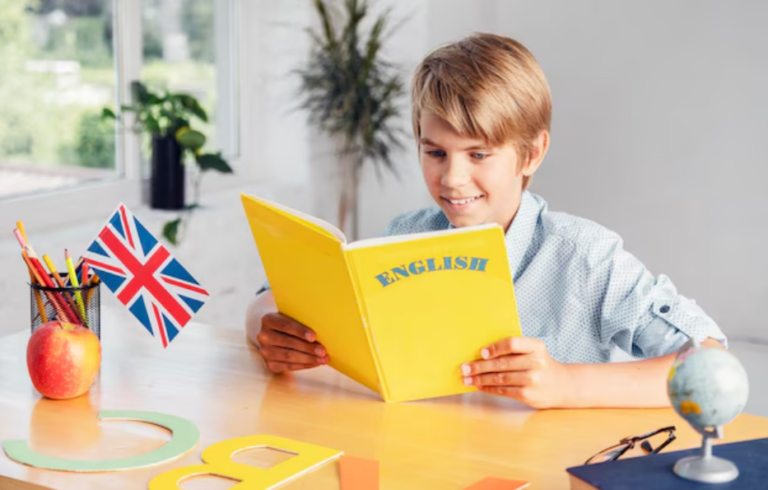
English Language
In grades 7 and 8 English Language Arts (ELA), students focus on advancing their literacy skills across reading, writing, speaking, listening, and language usage.
They develop critical reading abilities by analyzing various texts and identifying central ideas, themes, and literary elements such as plot and symbolism. Writing skills expand as students learn to craft persuasive arguments, informative essays, and narratives with clear organization and supporting evidence. Research skills are honed through conducting and synthesizing information from multiple sources. Speaking and listening skills are cultivated through engaging in discussions, delivering presentations, and evaluating others perspectives and reasoning. Language standards emphasize using grammar correctly, expanding vocabulary, and understanding word meanings in different contexts. These objectives collectively prepare students to effectively comprehend, communicate, and analyze information, fostering their academic growth and readiness for higher education and future careers.
106USD / 399SR for 1 Month

Math
In grades 7 and 8, the math curriculum focuses on expanding and refining foundational skills while introducing more complex mathematical concepts.
Grade 7 emphasizes operations with rational numbers, solving equations and inequalities, and understanding proportional relationships and geometric principles such as angle measure and area. Students learn to analyze data sets and draw inferences, laying the groundwork for statistical reasoning. In grade 8, the curriculum progresses to include working with radicals and exponents, exploring functions and their applications, and deepening understanding of geometric transformations and relationships.
Students also delve into bivariate data analysis and begin to use mathematical models to predict outcomes. Overall, these grades aim to deepen mathematical fluency, strengthen problem-solving abilities, and prepare students for advanced math concepts they will encounter in high school and beyond.
106USD / 399SR for 1 Month

Science
In grades 7-8, students delve deeper into advanced scientific concepts across biology, physics, and chemistry. In biology, they explore cell biology, ecology,
human anatomy, and environmental science. Physics topics include mechanics, waves, optics, electricity, magnetism, fluids, thermodynamics, and atomic physics. In chemistry, students study atomic structure, chemical reactions, states of matter, acids and bases, and organic chemistry. These objectives aim to equip students with a thorough understanding of scientific principles and processes, fostering critical thinking, problem-solving skills, and ethical awareness necessary for future academic and career pursuits in STEM fields.
106USD / 399SR for 1 Month

Computer Sciences
In grades 7 and 8, students focus on advancing their programming skills with languages like Python and Java, while mastering fundamental data structures
such as arrays and trees. They apply computational thinking to solve complex problems and learn object-oriented programming concepts. Grade 8 builds on this foundation with advanced practices like event-driven programming and GUI development, alongside learning SQL for database management and enhancing web development skills with HTML, CSS, and JavaScript. Additionally, students explore cybersecurity principles and ethical considerations in computing, preparing them
comprehensively for future studies and careers in computer science and technology.
93USD / 350SR for 1 Month
Course Enrollment Form
Enter all the required information correctly in the form field and submit, you will get the details in your email.
Our Teachers
Our seasoned educators have years of experience shaping young minds. Their passion for knowledge is contagious, and they're dedicated to helping each student reach their full potential. Expect innovative lessons and a supportive classroom environment that fosters a love of learning.
Why Choose Our Courses
Empowering young minds with interactive, culturally rich courses designed to make learning
fun and impactful
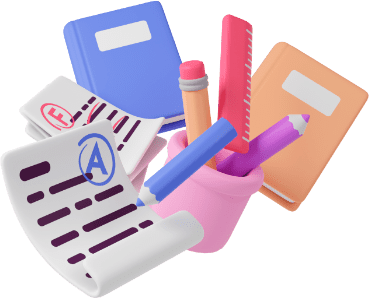
Specially Tailored for Children
Our courses are meticulously crafted for young learners, ensuring a fun and engaging educational journey that caters specifically to the developmental stages of young children.
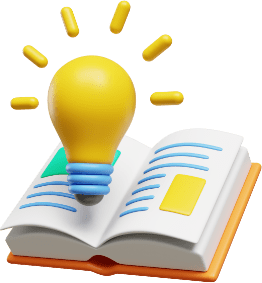
Culturally Enriching
Each lesson is rich with values that connect your child to their heritage, fostering a deep sense of belonging and appreciation for their cultural roots
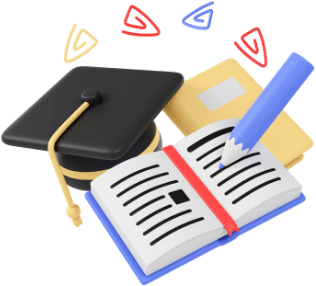
Learning Through Play
We believe in the power of play for learning. Our courses transform the challenge of mastering new skills into exciting and enjoyable activities, making education a delightful adventure for your child
Hear From Our Customers
Real stories from real people. Discover how our courses are making a difference in their educational journey.
Nawafith Al-Arabia expands children’s horizons widely; it broadens their perceptions and clarifies the basic concepts that a child needs at this age. The program prepares and helps the child to read and write.
Frequently Asked Questions
Real stories from real people. Discover how our courses are making a difference in their educational journey.
Each course is designed with specific age groups and learning outcomes in mind. We recommend considering your child's interests and learning needs when selecting a course. For personalized guidance, our support team is always here to help
A stable internet connection, a computer or tablet, and basic familiarity with using these devices are essential. Ensure your child's device has a functioning microphone and camera for the full interactive experience.
Absolutely. We understand the importance of finding the perfect match for your child's learning journey. We offer flexibility to switch courses within the first two weeks of enrollment.
Our teachers are chosen through a rigorous selection process that evaluates their expertise, teaching skills, and ability to connect with young learners. They undergo regular training to stay updated with the latest educational practices.
We understand that schedules can be unpredictable. Recorded sessions are available for missed classes, ensuring your child won't fall behind.
Yes, to reinforce learning, our courses include manageable assignments and activities designed to complement class lessons, enhancing retention and understanding.
We encourage parental involvement and offer resources and tips for supporting your child's learning journey at home. Regular updates on your child's progress are provided to keep you informed.
Our dedicated support team is available to answer any questions you have about our courses, the enrollment process, or how to best support your child's learning. Feel free to reach out anytime.
At NS Realize, we harness technology to make learning accessible and engaging for all, breaking boundaries with e-learning for learners and educators worldwide.
About Company
More Links
Contact Details
© Copyright 2024. All Rights Reserved – NSR Realize
